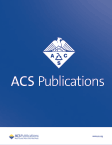摘要 PO1-19-03:T-REX试验:针对有1-2个前哨节点大转移灶的临床结节阴性乳腺癌患者的 "量身定制的区域放疗 "国际非劣效性随机试验
IF 3.4
Q2 PUBLIC, ENVIRONMENTAL & OCCUPATIONAL HEALTH
引用次数: 0
摘要
背景:现代全身治疗降低了乳腺癌(BC)的区域复发率,提高了患者的生存率。因此,区域放疗(RT)是否仍适用于前哨淋巴结(SLN)大转移患者值得商榷。术后区域 RT 与手臂发病率、肺炎、心脏病和继发癌症的风险增加有关。因此,有必要根据复发风险对区域 RT 的适应症进行个体化。试验设计:在这项多中心、前瞻性随机三期试验中,符合条件的患者均为临床结节阴性、雌激素受体阳性、HER2阴性、有1-2个SLN大转移灶且未完成腋窝淋巴结清扫。参与者被随机分配接受区域 RT(标准组)或不接受区域 RT(干预组)。区域 RT 包括腋窝 I-III 层和锁骨上窝。部分患者会接受乳腺内结节靶向治疗。在保乳手术(BCS)后,两组患者都会对剩余乳房进行 RT 治疗,而在乳房切除术后,标准组仅进行胸壁 RT 治疗。在干预组中,根据国家指南,胸壁 RT 可用于广泛多灶性的特定病例。RT 质量保证是试验不可分割的一部分。此外,来自原发肿瘤、SLN 转移灶和任何复发灶的材料都要进行基因表达分析,以确定局部复发的预后标志物和区域 RT 疗效的预测标志物。在确认资格并获得书面知情同意后,患者按 1:1 的比例被随机分配到不同的治疗组。根据试验地点和乳房手术(BCS 与乳房切除术)进行分层分配。参与 T-REX 试验不应影响全身辅助治疗的决定。资格标准:试验纳入和排除标准见表 1。具体目标:试验的主要目的是研究对于雌激素受体阳性、HER2阴性、T1-2肿瘤伴有1-2个SLN大转移且未接受腋窝淋巴结清扫术的临床结节阴性BC患者,省略区域RT是否不劣于常规区域RT。次要目的是研究不进行区域 RT 是否会降低手臂发病率和后期 RT 副作用,并改善短期和长期健康相关生活质量。此外,还将研究使用基因组分类器对局部区域复发进行预后分析以及预测区域 RT 的获益情况。统计方法:主要结果为五年无复发生存率(RFS)。如果干预组的结果比标准组低不超过 4.5 个百分点,即假设标准治疗的 5 年无复发生存率为 88%,危险比为 1.41,则将宣布非劣效性。次要结果包括局部复发、总生存期、患者报告的治疗组发病率以及与健康相关的生活质量。招募:该试验将从2023年4月至2028年12月在瑞典、挪威和芬兰纳入1350名患者。首批试验点已于2023年4月开放。联系信息主要研究者Sara Alkner,斯科纳大学医院,隆德大学,sara.alkner@med.lu.se。生物库负责人哥德堡大学Sahlgrenska大学医院的Per Karlsson,per.karlsson@oncology.gu.se。纳入和排除标准 引用格式:T-REX试验:针对有1-2个前哨节点大转移灶的临床结节阴性乳腺癌患者的 "量身定制的区域内放射治疗 "国际非劣效性随机试验[摘要]。In:2023 年圣安东尼奥乳腺癌研讨会论文集;2023 年 12 月 5-9 日;德克萨斯州圣安东尼奥。费城(宾夕法尼亚州):AACR; Cancer Res 2024;84(9 Suppl):Abstract nr PO1-19-03。本文章由计算机程序翻译,如有差异,请以英文原文为准。
Abstract PO1-19-03: The T-REX trial: a randomized international non-inferiority trial on Tailored Regional EXternal beam radiotherapy in clinically node-negative breast cancer patients with 1-2 sentinel node macrometastases
Background: Modern systemic treatment has reduced the incidence of regional recurrences and improved survival in breast cancer (BC). It is thus questionable whether regional radiotherapy (RT) is still indicated in patients with sentinel lymph node (SLN) macrometastases. Postoperative regional RT is associated with an increased risk of arm morbidity, pneumonitis, cardiac disease, and secondary cancer. Therefore, there is a need to individualize the indication for regional RT in relation to risk of recurrence. Trial design: In this multicenter, prospective randomized phase 3 trial, eligible patients have a clinically node-negative, estrogen receptor-positive, HER2-negative BC with 1-2 SLN macrometastases, and have not undergone completion axillary lymph node dissection. Participants are randomly assigned to receive regional RT (standard arm) or not (intervention arm). Regional RT includes the axillary levels I-III and the supraclavicular fossa. Internal mammary nodes are targeted in selected patients. After breast-conserving surgery (BCS), RT to the remaining breast is given in both groups while after mastectomy, chest-wall RT is only given in the standard arm. In the intervention arm, chest wall RT may be indicated in selected cases with extensive multifocality, according to national guidelines. RT quality assurance is an integral part of the trial. In addition, material from the primary tumor, SLN metastases and any recurrences is subjected to gene expression analysis to identify both prognostic markers for locoregional recurrence and predictive markers for the benefit of regional RT.
After confirmation of eligibility and written informed consent, patients are randomized 1:1 between the treatment arms. Allocation is stratified by trial site and breast surgery (BCS vs. mastectomy). Participation in T-REX should not affect decisions on systemic adjuvant treatment. Eligibility criteria: Trial inclusion and exclusion criteria are given in Table 1. Specific aims: The main aim of the trial is to investigate if the omission of regional RT is non-inferior to routine regional RT in clinically node-negative BC patients with estrogen receptor-positive, HER2-negative T1-2 tumors with 1-2 SLN macrometastases not receiving axillary lymph node dissection.
Secondary aims are to investigate whether refraining from regional RT reduces arm morbidity and late RT side effects, and improves short- and long-term health-related quality of life. In addition, the use of genomic classifiers for the prognostication of locoregional recurrences and the prediction of a benefit from regional RT will be investigated. Statistical methods: Primary outcome is recurrence free survival (RFS) at five years. Non-inferiority will be declared if the outcome in the intervention arm is not more than 4.5 percentage units below the standard arm, corresponding to a hazard ratio of 1.41 assuming 88% 5-year RFS with standard treatment. Secondary outcomes include locoregional recurrence, overall survival, patient-reported arm morbidity, and health-related quality of life. Accrual: The trial will include 1350 patients in Sweden, Norway and Finland from April 2023 to December 2028. First sites have been opened in April 2023. Contact information: Primary Investigator: Sara Alkner, Skåne University Hospital, Lund University, sara.alkner@med.lu.se. Responsible for the biobank: Per Karlsson, Sahlgrenska University Hospital, Gothenburg University, per.karlsson@oncology.gu.se.
Inclusion and exclusion criteria
Citation Format: Sara Alkner, Jana de Boniface, Dan Lundstedt, Ingvil Mjaaland, Lisa Rydén, Johan vikström, Pär-Ola Bendahl, Erik Holmberg, Helena Sackey, Elinore Wieslander, Per Karlsson. The T-REX trial: a randomized international non-inferiority trial on Tailored Regional EXternal beam radiotherapy in clinically node-negative breast cancer patients with 1-2 sentinel node macrometastases [abstract]. In: Proceedings of the 2023 San Antonio Breast Cancer Symposium; 2023 Dec 5-9; San Antonio, TX. Philadelphia (PA): AACR; Cancer Res 2024;84(9 Suppl):Abstract nr PO1-19-03.
求助全文
通过发布文献求助,成功后即可免费获取论文全文。
去求助
来源期刊

ACS Chemical Health & Safety
PUBLIC, ENVIRONMENTAL & OCCUPATIONAL HEALTH-
CiteScore
3.10
自引率
20.00%
发文量
63
期刊介绍:
The Journal of Chemical Health and Safety focuses on news, information, and ideas relating to issues and advances in chemical health and safety. The Journal of Chemical Health and Safety covers up-to-the minute, in-depth views of safety issues ranging from OSHA and EPA regulations to the safe handling of hazardous waste, from the latest innovations in effective chemical hygiene practices to the courts'' most recent rulings on safety-related lawsuits. The Journal of Chemical Health and Safety presents real-world information that health, safety and environmental professionals and others responsible for the safety of their workplaces can put to use right away, identifying potential and developing safety concerns before they do real harm.
 求助内容:
求助内容: 应助结果提醒方式:
应助结果提醒方式:


